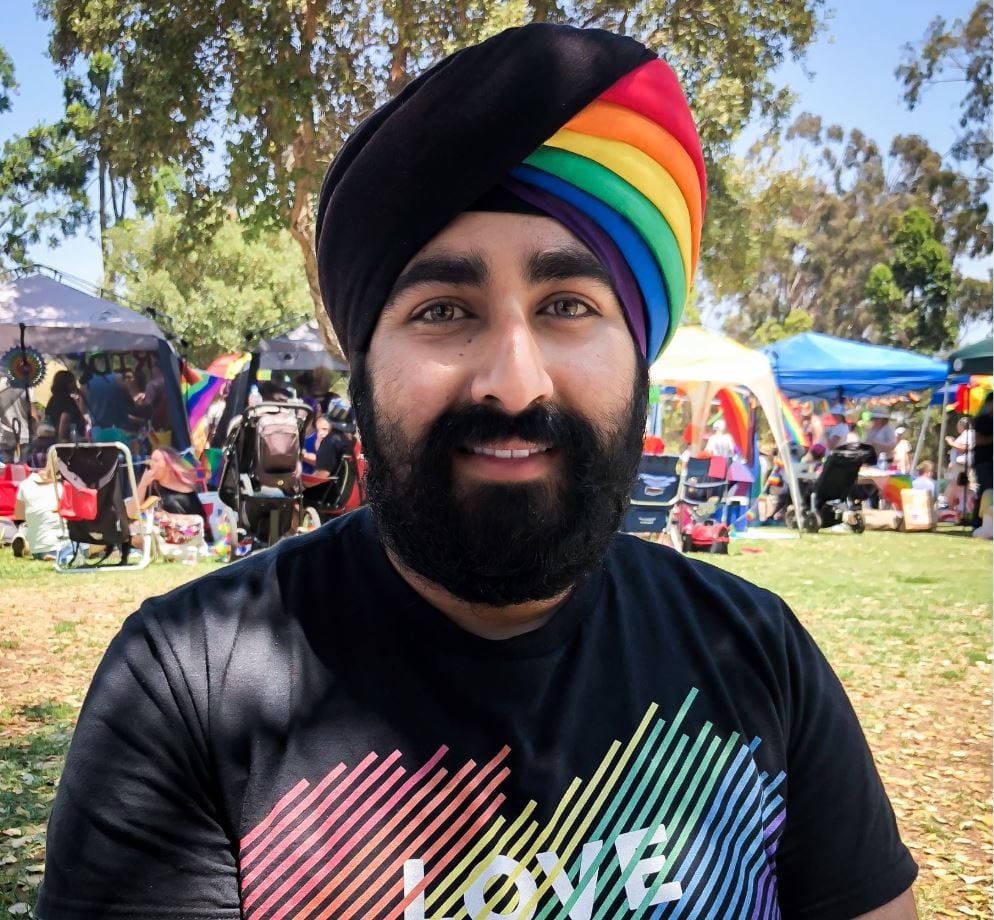| It’s not easy to rethink what you already know. Yet my curated stories this week reminded me of how important it is for all of us to question our current assumptions, as I did myself on everything from plastic bags always being bad (maybe they aren’t) to whether we should even have the expectation of privacy online (perhaps it doesn’t exist). I hope the stories this week cause you to raise similar questions for yourself. Reevaluating Turbans Last week a photo of San Diego-based bisexual neurosurgeon Jiwandeep Kohli rocking a rainbow turban to celebrate #PrideMonth went viral. This week the Toronto Raptors “#1 Fan” Nav Bhatia was featured in a Tim Hortons ad which focused on his decades long quest to bring more diverse fans to the NBA. Bhatia credits an incident 20 years ago where he was mistaken for a taxi driver simply because of his turban as a catalyst for his own personal mission. For too long Sikh men and their highly visible turbans have been judged unfairly. Stories like these help people reevaluate their biases toward what the turban actually means and perhaps more importantly … what it doesn’t. The Feel Good Story That Really Isn’t People who are constantly bombarded with outrage-inducing stories become desperate to share something good. Anything good. So this story about a nine year old using his allowance to pay a classmates’ lunch debt was one that would predictably go viral. Yet as this insightful take on Vice.com illustrates, this story should do more than make you praise one generous kid. It should also raise the question of why so many students have “lunch debt” in the first place and what else we should be doing to support them. Radiohead Turns Tables and Takes Revenge On Hackers When thieves stole an archive of recordings from Radiohead and demanded a $150k ransom – the band turned the tables and put all 18 hours of the archive up for sale online with proceeds to go to charity. It’s not only a boon for fans but a beautiful example of turning the situation around and making sure the bad guys lose. Facebook Admits There Is No Privacy, Pays To Track Users A few weeks ago addressing a lawsuit from the Cambridge Analytica scandal, Facebook counsel Orin Snyder said “there is no invasion of privacy at all, because there is no privacy.” Then this week Facebook announced they will pay users who sign up for an app that tracks their usage and behavior. Is privacy optional online? Does it even exist or is it even in our control to be able to “sell” back to Facebook? Why Plastic Bag Bans May Be Backfiring On the surface, banning plastic bags seems like a responsible thing to do. They disproportionately end up in the oceans or as landfill, yet as this article points out – many people rely on them for everyday tasks like scooping dog poop or lining trash bins. When they can no longer get them, they buy plastic garbage bags instead, which use significantly more plastic. It’s a perfect example of how sometimes we need to shift our mindset about a problem to see that the solution we are using may not be as optimal as we think. China’s Youth Culture Isn’t What You Think It’s tempting to see stories about China’s disturbingly ambitious social credit system or the growing trade war with the US and develop a one-dimensional view of the culture. This timely story from the team at JWT about the rise of China’s youth culture is a welcome departure from that narrative and a worthwhile read. |







WE RECENTLY REMOVED COMMENTING - LEARN WHY HERE >